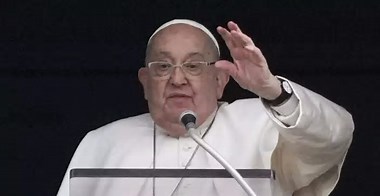
Pope Francis, the beloved leader of the Catholic Church, passed away on Monday at the age of 88, just weeks after making a miraculous recovery from a severe bout of pneumonia. While initial reports linked his hospitalization and recovery to respiratory issues, new reports suggest that his death may not be attributed to pneumonia but instead could have been caused by a cerebral hemorrhage.
According to sources from the Italian news agency ANSA, cerebral hemorrhage is being considered a likely cause of the pope’s death. The revelation comes after the pontiff spent 38 days receiving treatment for double pneumonia at Rome’s Gemelli Hospital, from which he was discharged on March 23. While Pope Francis’ pneumonia battle had raised significant concern, it now appears that his passing was related to complications from a stroke or hemorrhage, rather than respiratory failure.
During Pope Francis’ hospitalization, his primary doctor, Dr. Sergio Alfieri, had described the recovery as nothing short of miraculous. “There is a scientific publication according to which prayers give strength to the patient,” Dr. Alfieri told Corriere della Sera, Italy’s prominent newspaper. “I can say that twice the situation was lost, and then it happened like a miracle.” The doctor’s words highlighted the widespread global support and prayers that accompanied the pope throughout his health crisis.
The pope’s death marks the end of an era for the Catholic Church, with a conclave of cardinals now set to meet in the coming days to choose his successor. The Vatican has yet to announce a date for Pope Francis’ funeral, but his body will be transferred to St. Peter’s Basilica after being laid in a coffin at the Saint Martha residence, where he lived. In the meantime, the day-to-day affairs of Vatican City will be handled by Cardinal Farrell, who is the Camerlengo of the Holy See.
Pope Francis, who was born Jorge Mario Bergoglio in Argentina, had led the Catholic Church since his election as pope in March 2013. His death has sparked a wave of tributes and reflections on his legacy, which included his efforts to modernize the church and promote social justice issues worldwide.
Sources By Agencies


